HHave you ever looked at the ingredients list of your cleaning products? It's usually not a pretty sight - in fact, it's usually completely incomprehensible.
Not many people know what the heck all those ingredients even mean. That's why there's a good reason to make your own homemade cleaning products.
Just like you don't want to fill your body with foods or your skin with cosmetics that contain ingredients you can't even pronounce.
Then you don't want to fill your home with stinky, smelly chemicals like those found in many cleaning products. But that doesn't mean you can't have a sparkling clean house using homemade cleaners that you feel comfortable exposing your family to.
Learn how to make your own homemade cleaner with this DIY recipe a refreshing cleanser for skin and home. Everything from floors and walls to windows and more.
[lepopup slug='optin-diy-recipes']- Homemade cleaning products - DIY - For every occasion
- Natural and fresh - Meet the stars behind your new cleaning
- Baking soda for Homemade cleaning products
- Lemon juice for Homemade cleaners
- Vinegar as a cleaning agent
- Essential oils as a cleaning agent
- Castile soap
- APRICOT KERNEL OIL
- How to start cleaning your home clean and chemical-free with homemade cleaning products
- Homemade bathroom cleaning products
- Homemade kitchen cleaning products
- Homemade cleaning products for the rest of your home
- Conclusion on homemade cleaners
- Ready to learn more about clean home care?
Homemade cleaning products - DIY - For every occasion
When we cringe at the smell of the chemical-based solution after a room has been cleaned. These artificial scents are there to trick us into thinking that's what the room is supposed to smell like.
We've become accustomed to thinking that this is the odour that signifies a clean room. We've gotten into the habit of thinking that this odour indicates that the job is done.
Our health is assured, no flu can hit us and combined with a little advertising from the big companies, this strong link between chemical use and optimised health is reinforced.
This just makes us even more confused about what the right cleaning products for our homes should be.
Luckily, you can just enjoy the confusion of all the different chemical products on the supermarket shelf. You don't need them at all.
You can easily detox your home and create a healthier, chemical-free environment under your own roof with homemade cleaning products.
And luckily, there are some very simple ways to create a cleaner, less toxic environment in the home, simply by removing cleaning products and replacing them with natural alternatives.
Natural and fresh - Meet the stars behind your new cleaning
Before we get to the actual cleaning, let's check out some of the most common (and most useful) non-toxic cleaning products.

Baking soda for Homemade cleaning products
Baking soda is a salt of carbonic acid and is known to have virus-killing properties. In addition, it effectively cleans, removes odours, brightens and cuts through grease and dirt.

Lemon juice for Homemade cleaners
Natural lemon juice destroys mildew and mould, cuts through grease and makes hard surfaces shiny. Plus, lemon smells super fresh.

Vinegar as a cleaning agent
Thanks to its acidity, vinegar is nothing short of a cleaning miracle that effectively and gently removes grease, soap residue and dirt. It also works well against limescale. White or transparent vinegar may be preferred, but coloured vinegar works just as well.
Essential oils as a cleaning agent
Essential oils have gained a lot of popularity thanks to aromatherapyHowever, these naturally occurring plant compounds can also be used as fragrances for homemade cleaners (especially if you don't like the smell of vinegar). Essential oils can generally be considered safe, but these extracts can trigger allergies-so keep this in mind when choosing fragrances. In addition to fragrance, essential oils can also act as disinfectants and germicides.

Castile soap
Castile soap is a special type of soap that is made from plant oils. It does not contain any animal products (or chemical detergents). Castile soap cuts through grease and dirt and cleans.

APRICOT KERNEL OIL
This very pure and mild oil also acts as a cleansing and polishing agent.
Borax as a cleaning agent
Many DIY cleaning recipes out there on the wonderful internet make use of something called borax (a boron mineral and salt) as a non-toxic alternative to regular commercial cleaners. However, there's a lot of debate about this. Some studies suggest that Borax can be a skin and eye irritant and that it disrupts certain hormones. For this list, we have therefore chosen to avoid products that use Borax.
How to start with a clean and chemical-free
Cleaning your home with homemade cleaning products
Firstly, air out your home. Open the windows and let the fresh air in. There are probably a lot of accumulated toxins and chemicals that need time to migrate out of your home.
Secondly, pull out all your cleaning products and put them in a box. Get ready to get rid of them all because you won't need them anymore. Don't just throw them out, though. No one will benefit from that. We'd all like to ditch the boring chemicals, but it's better that a neighbour finishes using them before the empty bottles are thrown away. So give them to someone who hasn't made the leap to a chemical-free home yet.
Now you're ready to start using homemade cleaners.
Homemade bathroom cleaning products

1. Disinfectant - General cleaning
We start with homemade toilet and bathroom cleaners. Out with all the bleach, harsh chemicals and other hard stuff. Make your own homemade all-round cleaning for the bathroom. Simply mix 250ml of water with 3 tablespoons of liquid (mild) soap of your choice and add 20-30 drops tea tree oil. Voila! You've got yourself a great cleaner.
2. Detergent - Toilet cleaner
This cleaner cleans and acts as a scrub for the toilet bowl that also deodorises.
Pour approx. 250 ml baking soda and approx. 10 drops tea tree oil in the toilet. Add about 60ml of vinegar to the bowl and scrape with the toilet brush while the mixture foams and works.
For daily cleaning, fill a spray bottle with vinegar (approx. 500ml) and about 20 drops of an essential oil of your choice (citronella and tea tree both work really well). Spray the contents onto the toilet seat, let it sit for a few minutes and then wipe the surface clean.
3. Bath and shower sekP1Cabin
In these areas, dirt, grime and limescale can quickly turn ugly. Luckily, that's no problem for dirt enemy number 1: vinegar. To get rid of all the dirt, soap residue and limescale on your bathtub or shower, spray pure white vinegar on the affected areas and let it sit for about 30 minutes. Then rinse with warm water. You can also use a sponge to help remove the dirt. Alternatively, try mixing baking soda with a little liquid Castile soap and then scrape and rinse gently.
For everyday cleaning or to get rid of soap residue and avoid the worst limescale hell, mix 1 part water with 1 part vinegar in a spray bottle. You can add a few drops of essential oil if you don't like the smell of vinegar. Spray it on the affected areas and let it sit for at least a few minutes. Then wipe off with a damp cloth.
4. Air freshener/odour remover
Sometimes there can be a "little wind of unpleasantness" in the bathroom. Fortunately, it's possible to defeat this unpleasant odour with a homemade, non-toxic air freshener. All you need is baking soda, your favourite essential oiland an old jar with a lid, you don't mind poking holes in it.
You can use a small jar with a lid. If you can punch small holes in the lid, you can do this. If not, you can make your own lid out of cardboard and simply tape it on. Alternatively, you can use a salt or pepper shaker as it already has the holes in the lid. Fill it ¼ full with baking soda and about 5-10 drops of the desired essential oil. Adjust the drops according to how strong you want the scent to be.
Leave it in the bathroom and let it do its job.
As a daily air purifier, you can also use regular flower water or botanical water as it is also known (natural skin toner).
Homemade kitchen cleaning products

5. detergent - Dish soap
For regular hand dishwashing, simply combine 250 ml of liquid Castile soap and 3 tbsp. water and a few drops of essential oil of your choice in a bottle. Shake the contents well and use as you would any other dishwashing detergent.
6. Dishwashing machine
If you're lucky enough to have a dishwasher, simply mix 125ml of liquid Castile soap and 125ml of water (with the juice of a few slices of lemon if you like) in a glass jar.
Add some of this mixture to the detergent section of the dishwasher and fill the other compartment with white vinegar.
You can also put your used lemons in the dishwasher. That is, the lemons you have squeezed the juice out of for cooking, for example.
When you put them in the dishwasher, they help to give the entire sink a good acidity, which helps to remove streaks on glasses and overall makes the dishes better.
At the same time, it also eliminates the nasty odours that can sometimes occur in a dishwasher.
7. Refrigerator
For the fridge, you can once again resort to baking soda. Grab around 100ml of baking soda and add a little warm water. Then simply dip a cloth in the contents and scrub away the nasty stains in the fridge.
8. Oven
Homemade oven cleaners for the oven. The oven is often the place in the kitchen where grease and dirt are most likely to stick.
Heat the oven to 125 degrees and grab your spray bottle filled with vinegar - the same one you use for worktops. Once the oven is hot, spray loosely. Then pour salt directly onto the affected areas.
Let the oven cool down and finally use a wet cloth to scrub away the dirt. If that doesn't work, try baking soda instead of salt.
9. Microwave oven
The microwave is often overlooked when it comes to cleaning. We don't know why, but even in our house, where it is used frequently (it's a combi oven), we find that we sometimes forget to clean it.
Dirt and grime can quickly build up in a microwave, as many different things get a nuke in there. Pour some vinegar into a small cup and mix in some lemon juice.
Place the cup in the microwave, microwave for 2 minutes and leave the door closed for several minutes afterwards. When you open the door, simply wipe all sides with a warm wet cloth.
10. Grinder in kitchen sink
Grab an old-fashioned ice cube tray and fill it with vinegar - about 2/3 full. Top it off with water to fill it up completely and then pop it in the freezer. Once you've made vinegar ice cubes, simply throw a few into the grinder and give them a spin. This should clean the blades and make them good as new.
11. Drain pipe
To clear a blocked drain, start with a pot of boiling water and some baking soda. Pour about 1 dl of baking soda down the drain and then add the boiling water while it's still very hot (be careful not to burn yourself).
If that's not enough, you can follow up with baking soda and vinegar. Pour 1 dl baking soda with 2 dl vinegar into a saucepan and add the boiling water as soon as it stops sizzling and bubbling (baking soda and vinegar have a sizzling effect). Pour it quickly down the drain.
12. Worktops
Mix equal parts vinegar and water in a spray bottle. If your worktop is made of marble, granite or stone, you can use vodka instead. Vinegar is not good for these surfaces as the acid can destroy the fine surface.
13. Cutting boards
Cutting boards, funny word in the plural. Well, all you need to clean a chopping board, whether wooden or plastic, is a lemon. Cut a lemon in half and run it across the surface.
Let it sit for about 10 minutes. Then rinse with warm water. Should you need additional disinfecting power from the scrub, sprinkle a little coarse salt over the board and then rub with a slice of lemon.
14. pander
To remove stubborn grease residue on frying pans, you can use fine kitchen salt and simply scrub away with it (using the soft side of a scouring pad if necessary). Scrub away and the grease should give up. Use water at the end to clean the pan completely.
15. Cast iron pans / pots
Cast iron pots and pans do not benefit from soap, steel wool or the dishwasher. That's why you should always treat these pots and pans with care. Fortunately, there is an alternative way to tackle cast iron grease. Combine apricot kernel oil with a teaspoon of coarse salt and scrub with a stiff brush. Rinse with warm water.
Homemade cleaning products for the rest of your home

16. floor cleaner for floors
Homemade floor cleaners. For a fine and quick floor cleaning, combine one part white vinegar with two parts warm water in a bucket. Add 10 drops of peppermint oil for a clean and refreshing scent. Tiled floors are easy to clean with this mix, but it can also be used on wooden floors.
You can use a mop or floor cloth. If you're worried about your wood floor, add an extra portion of water and the mixture should be mild enough.
If you're still nervous, you can rinse the entire surface with clean water after the first cleaning to make sure there are no vinegar residues. If necessary, wipe the floor with a dry mop.
17. Walls
To scrub down the walls, mix 50 ml of white vinegar with about 1 litre of warm water. Use a cloth to scrub the walls. Add a little baking soda to the areas where you find dark spots.
In fact, we should all do this at least once a year. Dust also collects on vertical surfaces and sometimes you'll also find coffee or tea residue and other goodies that have crept up on the wall over time.
18. Windows and mirrors
For an all-purpose window cleaner, combine one part white vinegar with 4 parts water. You can also add a little lemon juice if you like. Then simply use a sponge or cloth to scrub windows and mirrors clean.
If necessary, use paper towels, paper towels or newspaper to wipe off. This will not only remove the remaining liquid, but also all the remaining elements. It also leaves the surface completely clean.
[lepopup slug='optin-diy-recipes']Conclusion on homemade cleaners
With homemade cleaners, you can actually go a long way with just a few ingredients. There's no need for your cleaning products to contain all kinds of boring and incomprehensible chemicals.
In everyday life, vinegar, lemon and baking soda go a long way. In addition, you can use apricot kernel oil, essential oils and Castile soap, which provide a much healthier and milder form of fragrance, polish and cleansing effect than all the usual products on the supermarket shelf with various hazard symbols.
We hope you've been inspired to at least try your hand at getting rid of dirt, grease and grime using things that don't necessarily require gloves and goggles. You can achieve a nice, shiny and fragrant home with these few, but incredibly effective products. Enjoy!
Ready to learn more about clean home care?
Please noteWe've done our absolute best to provide the best possible information, but as we haven't tried every single one of these solutions ourselves, we can't be held responsible for them - anything you try is at your own risk. If you try a recipe and encounter difficulties, please let us know. Of course, you're also welcome to report back on any good experiences you've had with homemade cleaners.
If you have any other great suggestions for a cleaner and more natural way to clean your home, please leave a comment below. Perhaps you have your own recipes for homemade cleaning products?
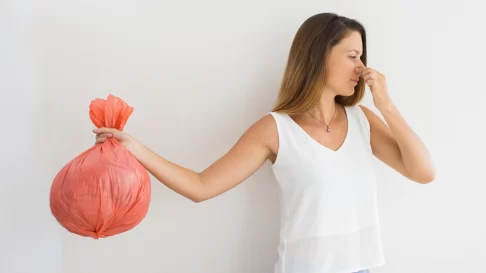




















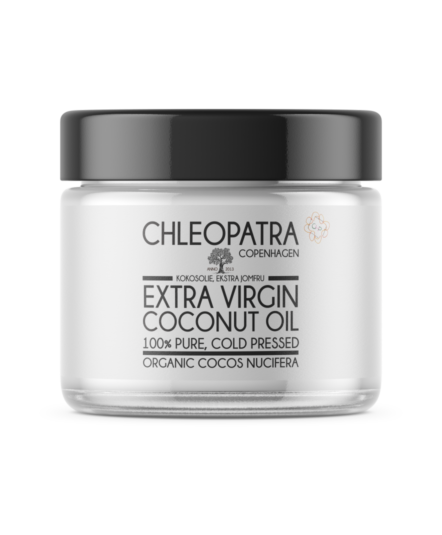






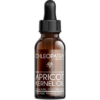
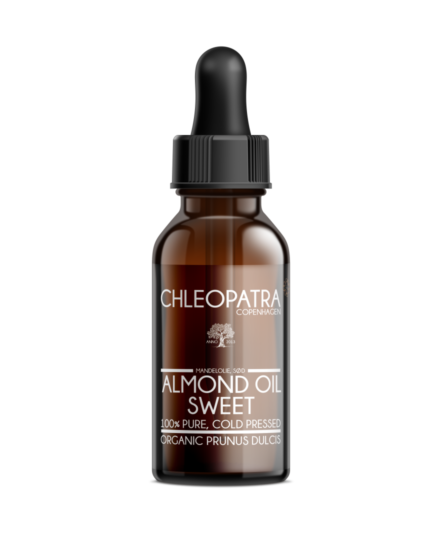



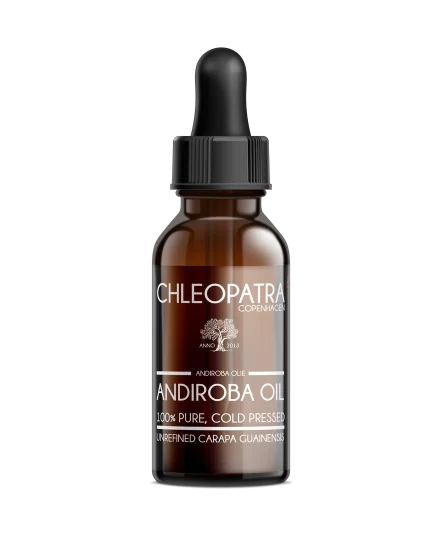



Regarding toilet cleaner (in the basin) - is it important that it's baking soda, or is baking powder okay? :-)
And do you know where to get large glass spray bottles?
Do you have a recipe for Bin fresh powders. Which can be used for the bins so they don't smell
Hi Christina,
Thank you for your question. We didn't have one, but we quickly put one together. :)
You can find it here: https://www.chleopatra.dk/bin-fresh-powder/